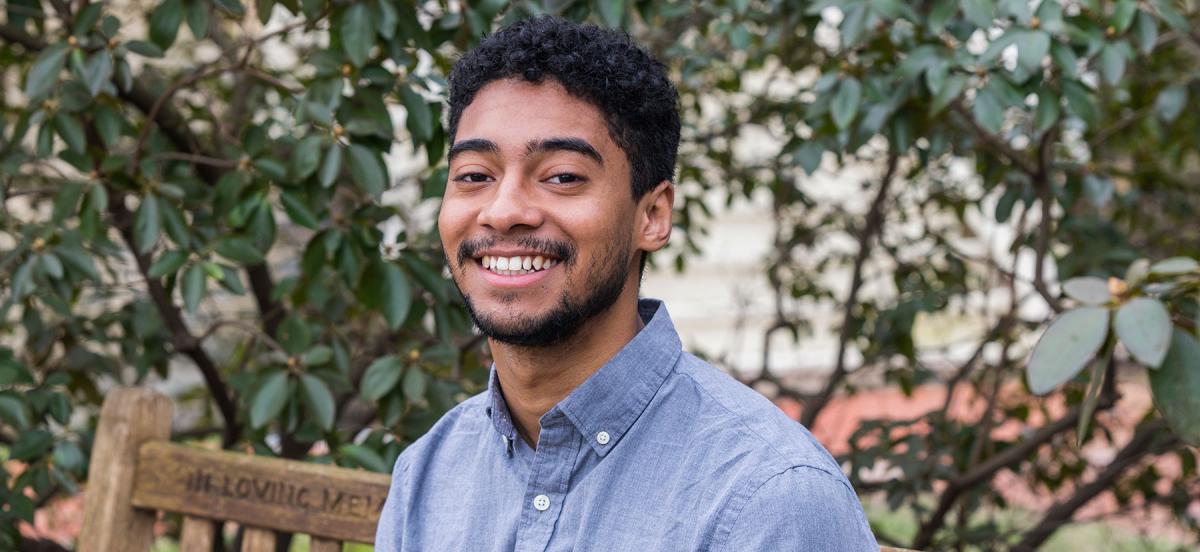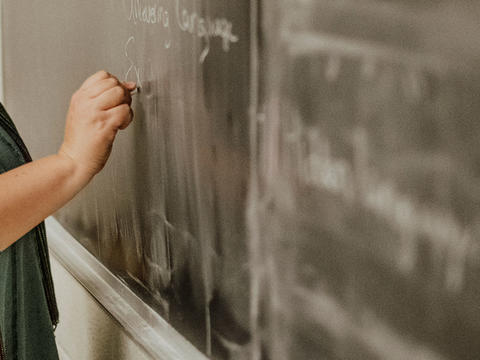Jhoneidy Javier '19 Heads to China on Princeton in Asia Fellowship

Photo of Jhoneidy Javier '19 by Patrick Montero.
Details
The comparative literature major will spend next year teaching English classes at Wuhan University of Technology.
Mandarin language study has been an important part of Jhoneidy Javier’s Haverford experience. The comparative literature major has devoted four years to it, including attending a language-intensive study abroad program at Capital Normal University in Beijing last fall and producing a senior thesis that includes analysis of the 1878 Chinese-language Zhang Changjia memoir Opium Talk. Now he will have another chance to use his Mandarin as the recipient of a Princeton in Asia (PiA) Fellowship.
As part of that program, Javier will spend the next year living on campus and teaching English to first-years and sophomores at Wuhan University of Technology, more than 700 miles south of the capital of the world’s most populous nation. He applied to the program—which funds travel, room, board, and a monthly stipend for fellows—because he wanted to gain teaching experience and to return to China to continue his own language and cultural studies there.
“There's a lot of valuable, pedagogical experience I can gain from teaching abroad,” he said. “I was placed in this location [Wuhan] specifically because the position allows for a lot of flexibility in how I can approach teaching and the topics I choose to discuss with the students.”
Javier is looking forward to immersing himself in the local community in Wuhan, as he did in Beijing during his semester abroad. (“After the initial culture shock, I was happily surprised that I had become so comfortable in such a new place,” he said.) He has been an integral part of the Haverford community, too, SURGE Mentorship Program, serving as the Students’ Council’s Officer of Multiculturalism, and helping to lead the Black Students League. He is also a member of the 2018–2019 Haverford cohort of the Mellon Mays Undergraduate Fellowship, which aims to diversify the faculty ranks of higher education by providing resources for underrepresented students to pursue their doctorates.
After his year in Wuhan, Javier aims to attend graduate school either for English or comparative literature, and he sees his PiA fellowship as laying a vital foundation for his eventual career as a professor.
“I definitely see this fellowship as preparation and training for grad school and beyond,” he said, “since it will be the first time I will teach in a classroom full time.”
Since 1898, PiA has fostered mutual appreciation and cultural understanding by connecting service-minded American graduates and Asian partner organizations through immersive work experiences that benefit local and global communities. Currently, PiA sponsors over 150 fellowships in 22 countries.
For Javier his fellowship is the latest step on a promising academic and professional path for which he has worked hard but didn’t even know he should aspire until relatively recently.
“I was the first of my immediate family to graduate from high school and will be the first to graduate from college,” he said. “I could not have imagined four years ago that I would be on this path of fellowships and graduate schools and higher education. Quite honestly, my entire academic experience has been a surrealist trip. … It's scary, but definitely more exciting than scary.”
Read more about Fords who have won fellowships, scholarships, or grants.



